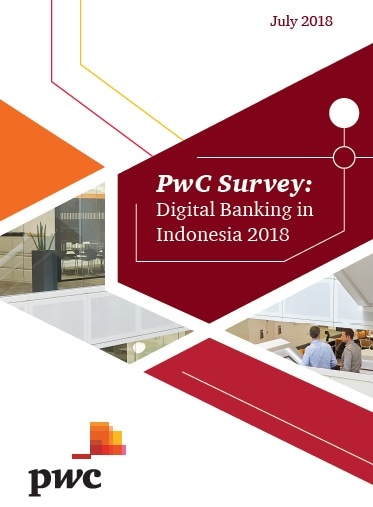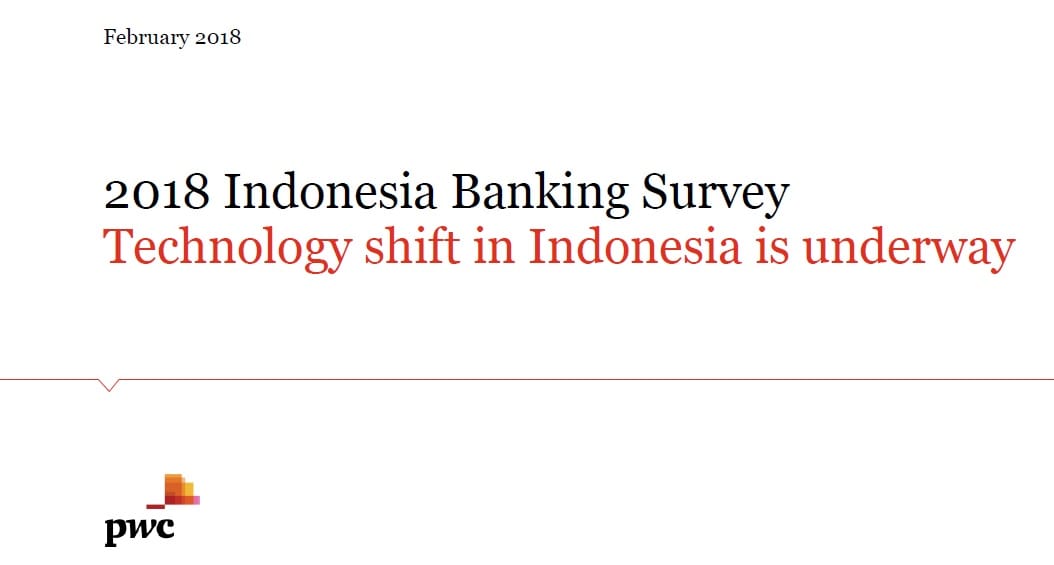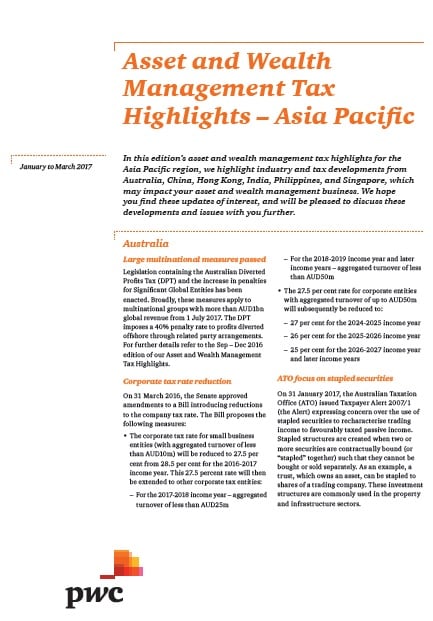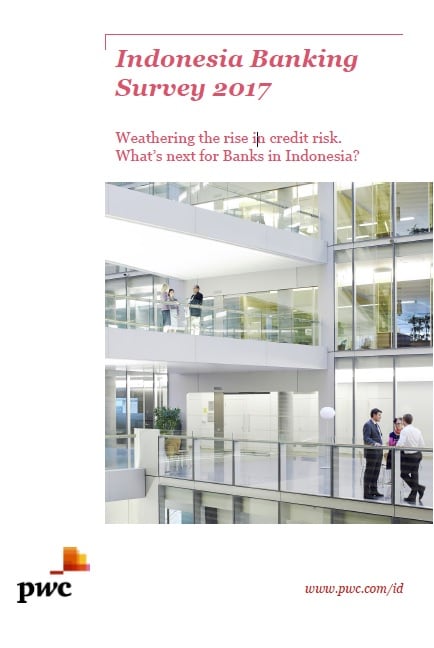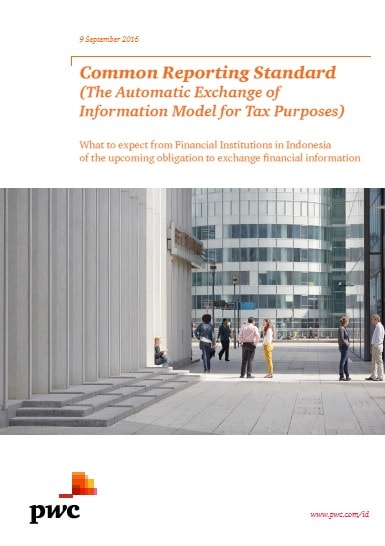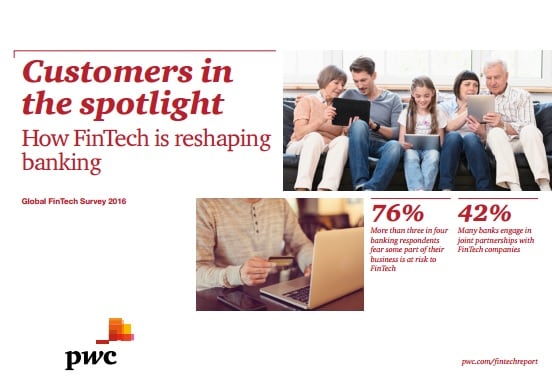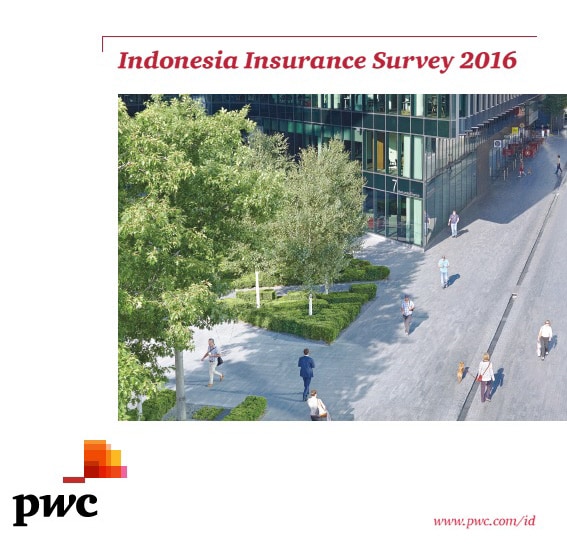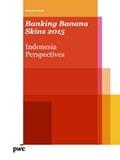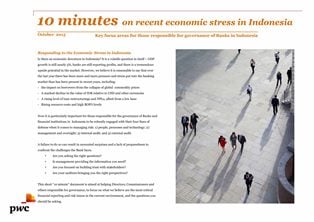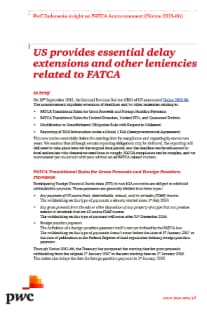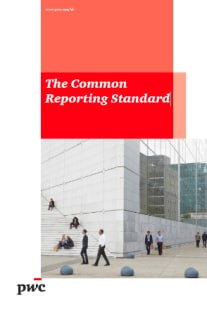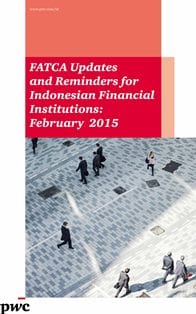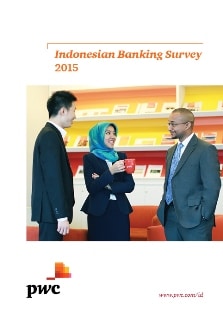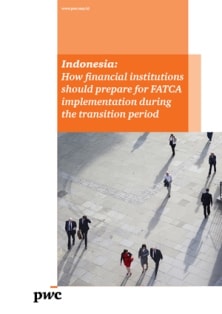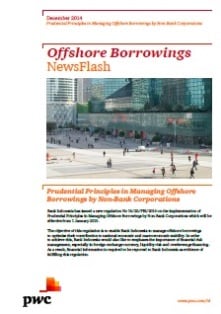{{item.title}}
{{item.text}}

{{item.text}}
{{item.text}}

{{item.text}}
{{item.text}}

{{item.text}}
February 2019
PwC Indonesia's first survey of CFOs in the Indonesian Insurance industry highlights the priorities of the CFO and the finance function as we move into the next period of development for the industry. Responses, which came from all parts of the Indonesian insurance market, highlighted a number of key themes which will be of interest to all stakeholders.
July 2018
The first edition of the PwC Indonesia Digital Banking Survey attempts to gather and synthesize diverse views from senior banking executives from across banking institutions within Indonesia whilst at the same time protecting the confidentiality of the participants. The survey covers responses from 52 respondents from 43 banks in Indonesia.
February 2018
Technology is the recurring theme coming out of our 8th Indonesia Banking Survey. Respondents said technology is the #1 driver of business transformation and the top risk to the industry. Transactions through digital channels are surpassing traditional branches in Indonesia for the first time. The war for talent is strongest for technology specialists.
May 2017
In this edition's asset and wealth management tax highlights for the Asia Pacific region, we highlight industry and tax developments from Australia, China, Hong Kong, India, Philippines, and Singapore, which may impact your asset and wealth management business. We hope you these updates of interest, and will be pleased to discuss these developments and issues with you further.
March 2017
Looking through the lens of Common Reporting Standard (CRS) implementation practices in Indonesia
President Joko Widodo's administration will take advantage of an opportunity to scrap long-standing bank secrecy policies, after adopting new global standards on the automatic Exchange of Information. It is an evitable process that all Financial Institutions in Indonesia have to perform the identification of taxpayers coming from countries in cooperation and to report them to those respective countries.
March 2017
This is the 7th PwC Indonesia Banking Survey. PwC surveyed 78 respondents from 58 different banks in Indonesia, together representing 87% of banking assets in Indonesia. The respondents were from upper management at the respective banks. In our 2017 survey, credit risk is clearly still a big concern but the sense is that stability has improved -most now see NPLs on the decrease.
September 2016
Countries around the world have been engaging in automatic exchange of information to tackle tax evasion through The Common Reporting Standard (CRS), formally referred to as the Standard for Automatic Exchange of Financial Account Information. Indonesia has already committed to support the movement toward information transparency by signing the multilateral agreement to adopt CRS with the first intended information exchange due by September 2018 and enacting the tax amnesty program in mid-2016. If this is the end of tax evasion, then everyone should prepare for a new era of transparency in tax matters.
July 2016
The majority of financial sector executives believe consumer banking is the sector most likely to be disrupted by FinTechs. As much as 76% of banking respondents fear some part of their business is at risk Nevertheless, just over half of the banks consider themselves to be customer-centric, while as much as four in five FinTechs believe they deliver customer-centric service and offerings.
May 2016
While many market publications focus on market data and the penetration statistics supporting growth opportunity, our survey presents the views of actual executives of top insurance companies in the market on a range of issues relevant to the industry.
As you will see, the views on growth are still bullish, despite some recent slowdown in the economy and a tough investment market in 2015. However, the survey also highlights that many companies continue to have a need to develop and strengthen their risk management function and their strategy for addressing a very dynamic change underway with digitalisation and the impact of technology.
March 2016
FinTech is changing the Financial Services (FS) industry from the outside in. We estimate within the next 3-5 years, cumulative investment could well exceed $100bn. And financial institutions and tech companies are stepping over one another for a chance to get into the game. The result is a new competitive landscape and playing field. As the lines between traditional finance, technology firms, e-commerce and telecom companies are blurring, many innovative solutions are emerging and there is clearly no straightforward solution to navigate this FinTech world.
How does the Banking industry in Indonesia and globally rank the main risks in the current climate and how well prepared the industry is to address those risks?
October 2015
This short “10 minute” is aimed at helping Directors, Commissioners and others responsible for Governance, to focus on what we believe are the most critical financial reporting and risk issues in the current environment, and the questions you should be asking.
September 2015
The IRS granted the request to extend FATCA reporting deadline by announcing Notice 2015-66 on 18 September 2015. This new notice essentially defers the starting date for compliance and reporting by one to two years. We caution that although certain reporting obligations may be deferred, the reporting will still need to take place later for the original time period, and the deadline can be influenced by local authorities who themselves need time to comply. FATCA compliance can be complex, and we recommend you to consult with your advisor on all FATCA related matters.
August 2015
As FATCA (Foreign Account Tax Compliance Act) gains spotlight from Indonesian regulators and financial institutions, so does its 'sibling': CRS (Common Reporting Standard). Facilitating automatic exchange of financial account information just like FATCA, CRS has more flexibility in terms of operating bilaterally and/or multilaterally. As of June 2015, Indonesia has officially been listed as one of the MCAA (Multilateral Competent Authority Agreement) signatories, triggering the obligation for Indonesian financial institutions to submit their first CRS report on September 2018.
February 2015
Foreign Account Tax Compliance Act (FATCA) is constantly-updated regulation. The United States Internal Revenue Service (IRS) has been continually releasing announcements and update in order to accomodate the needs and concerns of FATCA's global stakeholders. As of January 2015, the IRS has issued new Frequently Asked Questions (FAQs) and guidelines on creating self-certification forms and IDES. Additionally, the IRS has also released the new version of the W-9 form which must soon be adopted by financial institutions globally.
At present, Indonesia is subject to a specific FATCA regime. Indonesia has been granted with "Model 1 IGA in substance" status since May 4th 2014 which was supporsed to expire on December 31st 2014. However, this status has been extended based on IRA Announcement 2014-38 yet there are cautionary clauses that must be noted by relevant Indonesian Financial Institutions (Indonesian FIs). Furthermore, the respectice Indonesian FIs must be concerned with the progressing FATCA timeline. The nearest deadline will be indentification of pre-existing high-value individual accounts, scheduled to be due on June 30th 2015 at the latest.
2015
The past year 2014 had been a challenging year for the Indonesian economy. Indonesia's economy in 2014 grew at its slowest pace in five years. Since the beginning of 2014, economic growth has been trending down as exports of primary commodities fell, and growth slowed in the international market, especially China. In addition, the high interest rate environment and the weakening of Rupiah had affected the domestic demands as well. The year 2014 also marked with the legislative and presidential elections.
With that backdrop, we asked senior banking executives in December 2014 for their views as to how they see 2015 and challenges ahead. Our survey covers bankers’ prediction, concerns, comments on regulations, responses to new government initiatives and thoughts on consumer banking trends.
2014
Over the past five years, PwC Indonesia has asked the views of senior banking executives across Indonesia to gather and sunthesise their diverse opinions for our Indonesian Banking Survey.
The survey endeavours to share bankers' insights on business strategies for growth and challenges; discuss bankers' views on major business areas; and promote mutual understanding across the Indonesian banking industry.
2014
FATCA, the Foreign Account Tax Compliance Act, was enacted by the US Congress ub 2010 in order to prevent and detect offshore tax evasion. The complex FACTA required certain non-U.S. financial institutions to identify, report, and withhold tax of certain account holders for the Internal Revenue Service (IRS). Financial institutions (FIs) that are in scope of FACTA and have to register with the IRS are depository institutions, custodial institutions, insurance companies with annuity contract, investment entities, certain holding and treasury centres. However, FIs such as BPR (Bank Perkreditan Rakyat), financing companies, cooperatives, and other certain FIs do not need to register with the IRS since they are considered complied with FACTA. The cost of non-compliance for financial institutions that are not subject to FACTA exemption is the imposition of 30% withholding tax on their US-sourced income.
December 2014
Bank Indonesia has issued a new regulation No 16/20/PBI/2014 on the implementation of Prudential Principles in Managing Offshore Borrowings by Non-Bank Corporations which will be effective from 1 January 2015.
The objective of this regulation is to enable Bank Indonesia to manage offshore borrowings to optimise their contribution to national economic and macroeconomic stability. In order to achieve this, Bank Indonesia would also like to emphases the importance of financial risk management, especially in foreign exchange currency, liquidity risk and overleverage financing.
As a result, financial information is required to be reported to Bank Indonesia as evidence of fulfilling this regulation.

